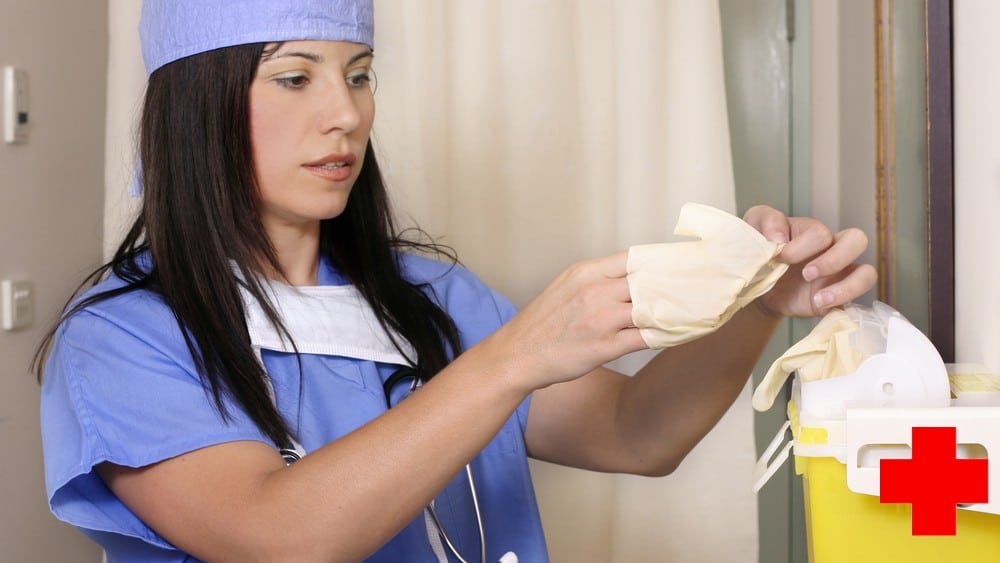Greetings!
Welcome to another comprehensive and detailed RN certification article from Nurse Code.
We guarantee that you’ll understand; how to get nursing certifications, different RN certification requirements, and the best RN certificates by the end of this article.
In particular, we will look into the following areas:
- The top RN certifications
- The best RN specialty certifications
- Certification requirements
- Potential Salary
Let’s jump right in!
Introduction

As the healthcare landscape changes, the need for more trained and qualified nursing professionals is increasing.
For Registered Nurses (RNs), getting additional nursing certification improves their nursing education and professional development leading to the growth of their nursing career.
RN certifications from professional national accreditation organizations make a certified Registered Nurse more skilled and marketable.
And while there are different nursing certifications, identifying the proper nursing certification for your education, experience, and nursing specialty is often overwhelming.
If you’re wondering what certifications can an RN get, this is the right place for you.
Our detailed guide will walk you through the available top RN certifications.
Best Nursing Certification for Certified RNs

There are many certifications for nurses from different accreditation bodies and diverse nursing specialties.
We have compiled a comprehensive Registered Nurse certification list to make things easier.
This certification list will focus on certifications that require BSN certifications and below:
1. Neonatal Nursing Certification
The CCRN (Neonatal) certification allows RN to provide specialized nursing services to critically ill neonates.
Neonatal nurses must be highly trained and certified due to the delicate nature of their patients
RNs interested in this nursing certificate must satisfy various certification requirements and pass the AACN neonatal nursing certification exam.
Neonatal nurses earn an average of $127000 per year.
Requirements:
- Valid RN license
- 1750 hours of RN/APRN clinical practice experience (875 hours in the preceding year) OR five years of experience RN/APRN experience and 2000 hours of neonate experience (144 hours in the prior year)
- Pass the CCRN (neonatal) certification exam
2. Emergency Nurse Certification
Certified Emergency Nurses (CEN) are highly skilled RNs that provide critical emergency nursing services in different emergency settings.
The duties of an Emergency Nurse RN include assessing patients’ conditions, stabilizing patients, and performing wound care and minor emergency medical procedures.
Emergency RNs earn an average of $116000 per year.
Requirements:
- Valid RN license
- Two years of professional RN experience (recommended)
- Pass the Board of Certification for Emergency Nursing (BCEN) emergency nurse certification exam
- Maintain the emergency nurse licensure through continuing education courses
3. Oncology Nursing Certification
The Oncology Nurse Certification is an excellent introductory level certificate for RNs working in Oncology departments.
Oncology Certified Nurses (OCN) is responsible for administering radiation and chemotherapy treatments, assessing patients’ conditions, developing care plans, and checking patients’ vitals.
Due to the stringent eligibility requirements, RNs with Oncology nursing certifications are in high demand.
Oncology RNs earn an average of $113000 per year.
Requirements:
- Two years of RN experience
- 2000 hours of adult oncology clinical practice
- Pass the oncology certification exam from the Oncology Nursing Certification Corporation (ONCC)
- Ten hours of oncology nursing education
4. Psychiatric-Mental Health Nurse Certification
The Psychiatric-Mental Health Nurse-board Certified (PMH-BC) credential is a five-year competency-based RN certification for Nurses working in the psychiatric/mental health specialty.
This competency certification from the ANCC assesses the clinical experience, knowledge, and understanding of Mental-Psychiatric RNs.
Mental Health Nursing professionals who acquire this crucial professional certification grow their skillset and can take up more professional responsibilities in the Psychiatric Specialty.
Psychiatric RNs earn an average of $107000 per year.
Requirements:
- Valid RN license
- 2000 hours of psychiatric/mental health clinical practice
- Pass the Psychiatric-Mental Health Nursing Certification (RN-BC) examination from ANCC
- 30 hours of psychiatric/mental continuing education training
5. Pediatric Nursing Certification
A Certified Pediatric Nurse (CPN) is responsible for evaluating children’s health conditions, administering medication, developing treatment plans, and running diagnostic tests.
The pediatric nursing certification offered by the Pediatric Nursing Certification Board (PNCB) is an excellent certification choice for Nurses interested in dealing with children.
Pediatric RNs earn an average of $107000 per year.
Requirements:
- Valid RN license with two years of experience
- 2000 hours of pediatric nursing experience in the last three years
- Pass the PNCB Pediatric Nursing Certification exam
- Maintain licensure through continuing education classes
6. Case Management Certification
The RN Case Management certification is a specialized nursing credential that allows an RN to provide patients with specialized and high-quality nursing care.
Case managers are responsible for assessing specific patient needs and liaising with different health care professionals to formulate effective care plans.
RN Case Managers work in most hospital departments and are vital for providing comprehensive health care.
On average, RN Case Managers earn $105000 per year.
Requirements:
- Valid RN license
- 2000 hours of case management experience
- Two years of full-time RN experience
- Pass the American Nurses Credentialing Center (ANCC), RN-BC Nurse Case Management Certification Exam OR the Commission for Case Manager Certification (CCMC) RN-BC exam.
7. OR Nurse Certification
The Competency and Credentialing Institute (CCI), Certified Nurse Operating Room (CNOR) is the official certification designation for perioperative RNs working in operating rooms.
Perioperative RNs are responsible for patient care, assisting during surgery, maintaining surgical equipment, and providing post-operative patient education.
Operating room RNs on average earn $85000 per year.
Requirements:
- Valid RN license
- Currently working full time or part-time as a perioperative nurse
- Two years of perioperative nursing experience
- 2400 hours of perioperative experience with 1200 hours of intraoperative experience
- Pass the CCI, CNOR certification exam
8. Nursing Informatics Certification
With the increased importance of technology in healthcare, RNs with informatics certification are in high demand.
Informatic RNs are responsible for assessing health data, creating workflows, monitoring health systems, and providing care teams with high-quality clinical data.
Informatics RNs need to complete the ANCC, Informatics Nursing Certification exam that assesses their knowledge and technical expertise in healthcare technology.
On average, Informatics Nurses make $75000 per year.
Requirements:
- Have a valid RN license
- Pass the American Nursing Credential Center (ANCC) informatics nursing certification exam
- Maintain the RN informatics license with relevant continuing education courses
9. Certified Hospice and Palliative Care RN Certification
Hospice and Palliative Care RN provide crucial nursing care to terminally ill patients or those with severe medical conditions despite their location (inpatient, nursing home, private home)
The duties of a Palliative Care Nurse include evaluating patient conditions, administering medication, and providing relief from adverse medical symptoms.
Earning the Hospice and Palliative care certification is a big plus for experienced RNs working in this sector.
On average palliative care, RNs earn $70000 per year.
Requirements:
- Valid RN license
- 500 hours of palliative care practice in the last 12 months or 1000 hours of palliative care practice in the last 24 months
- Pass the Certified Hospice and Palliative Care (CHPC) certification exam from the National Board for Certification of Hospice and Palliative Nurses (NBCHPN)
10. Critical Care Registered Nurse (CCRN) Certification
The Acute Care Nursing Certification is a popular RN certification that allows nurses to provide critical care nursing services across all acute care specialties.
Typical duties of an Acute Care Nurse include checking patient vitals, administering medications, developing care plans, and collaborating with other healthcare to provide high-quality medical assistance.
The CCRN certification exam from AACN assesses the clinical expertise, nursing knowledge, and experience of potential CCRNs.
CCRNs earn an average of $68000 per year.
Requirements:
- Valid RN license
- Two years and 1750 hours of acute care experience (875 hours in the preceding year) OR five years and 2000 hours (144 hours in the prior year) of direct patient care experience
- Pass the American Association of Critical-Care Nurses (AACN), CCRN certification exam
- Maintain CCRN licensure through relevant continuing education courses
11. School Nursing Certification
Nationally Certified School Nurses (NCSN) are Certified RNs responsible for providing primary nursing care to students in educational institutions.
RN School Nurse’s duties include providing first aid, liaising with relevant parties to prepare effective care plans, administering medication, and monitoring student’s health conditions
School RNs are vital for the continued health and well-being of students, teachers, and support staff.
On average, school RNs earn $50000 per year.
Requirements:
- Valid RN license
- 1000 hours of nursing practice experience in the last three years
- Pass the NCSN certification exam from the National Council of State Boards of Nursing (NBCSN)
- Maintain licensure through continuing education courses
RN Specialty Certifications

Registered Nurses with Advanced Practice nursing education can take different Specialty Nursing Certifications to improve their job prospects and Specialty Nursing Health Education.
Various national nursing credentialing bodies offer nursing specialty certifications that guarantee the quality of nursing care from certified RNs.
Here are some of the top Advanced Practice Registered Nurse (APRN) certifications:
1. Certified Registered Nurse Anesthetist (CRNA) Certification
Certified Registered Nurse Anesthetists (CRNA) are highly skilled and qualified APRNs that provide anesthesia services across various health settings.
The duties of a CRNA include assessing patients’ health conditions, administering and maintaining anesthesia during medical procedures, and providing post-anesthesia care.
CRNAs earn an average of $181000 per year.
Requirements:
- Valid RN license
- Attend an accredited CRNA nursing program
- Apply for the National Board for Certification and Recertification of Nurse Anesthetists (NBCRNA), National Certification Exam (NCE)
- Sit and pass the NCE
- Apply for CRNA licensure
- Maintain licensure through the Continued Professional Certification Exam
2. Family Nurse Practitioner (FNP-BC) Certification
Family Nurse Practitioners are Specialized Nursing Practitioners who provide advanced nursing care to patients.
Typical duties of a Family Nurse Practitioner include evaluating patient conditions, administering medication, maintaining patient records, and developing treatment plans.
Family Nurse Practitioners usually boast advanced nursing practice experience and higher nursing education credentials than regular Nurses.
On average, Family Nurse Practitioners earn $110000 per year.
Requirements:
- Valid RN license
- Masters (MSN), postgraduate or doctoral degree
- 500 hours of supervised clinical practice
- Complete advanced APRN course (pharmacology, health assessment, physiology)
- Pass the ANCC board-certified Family Practitioner (FNP) certification exam
- Maintain certification licensure through continuing education classes
3. Women’s Health Nurse Practitioner (WHNP)
A WHNP is a highly experiences Nurse Practioner (NP) that specializes in women’s health, providing services to biological, transgender, and intersex women.
Duties of a WHNP-BC include assessing and evaluating female body organs, administering contraceptives, and screening tests, and breast cancer screening.
Women Health Nurse Practitioners earn an average of $110000 per year.
Requirements:
- Valid RN/APRN license
- Earn a master’s or postgraduate nursing degree
- Pass the NCC WHNP certification exam
4. Certified Ostomy Care Nurse (COCN)- Advanced Practice
Ostomy APRNs are highly Specialized Registered Nurses responsible for providing comprehensive nursing services to ostomy patients.
Duties of COCN include evaluating patients, collecting patient data, ostomy management, and medication administration.
Ostomy APRNs earn an average of $105000 per year.
Requirements:
- Valid RN license
- Complete higher nursing training (MSN, DNP)
- Hold professional nursing designation (APRN, CNS, CRNA)
- Complete a Wound, Ostomy, and Continence (WOC) nursing certifications courses OR valid entry-level ostomy certification
- Pass the WOCNCB Ostomy advanced practice certification exam
5. Adult-Gerontology Primary Care Nurse Practitioner Certification
Adult-Gerontology Nurse Practitioners are Advanced Practice Nurses who provide specialized nursing services to older patients.
The Adult-Gerontology Advanced Nursing Certification tests the applicant’s clinical knowledge, skills, and experience to deliver high-quality services.
Adult-Gerontology Nurse Practitioners (NP) prescribe and administer medication, check patient vitals and prepare care plans.
Gerontologist RNs earn an average of $95000 per year.
Requirements:
- Valid RN license
- Valid Master (MSN), postgraduate, or doctoral degree (accredited AGNP program)
- 500 hours of supervised adult gerontology clinical practice
- Complete advanced physiology, pathophysiology, health assessment, and pharmacology nursing training
- Pass the ANCC board-certified Adult-Gerontology Primary Care Nurse Practitioner (AGPCNP-BC) certification examination
6. Progressive Care Certified Nurse (PCCN)
The PCCN is a specialist designation for highly experienced RNs and APRNs.
PCCNs care for critically ill adult patients in hospitals (inpatient), nursing homes, or private home settings.
Duties of a PCCN include developing care plans, easing patient discomfort, evaluating patient conditions, and documenting patient history
On average, PCCNs earn $85000 per year.
Requirements:
- Valid RN/APRN license
- 1750 hours of critical care experience (875 hours within preceding year) OR five years RN/APRN experience with 2000 critical care experience (144 hours within preceding year)
- Pass the AACN, PCCN certification exam
Conclusion

Earning a Nursing certificate is no longer a luxury but a requirement in today’s dynamic healthcare setting.
Nursing certificate programs impart vital nursing training and skills to RNs, allowing them to provide high-quality nursing care.
Consider taking up quick nursing certifications, nursing certifications for new grads, or nursing certifications online and start enjoying the perks and benefits of an RN certification.
Even nursing certifications without experience are still desirable in the healthcare sector.
We hope that this comprehensive RN certification article has inspired you and will act as an accurate guide in your nursing certification journey.
Continue reading for answers to our reader’s frequently asked questions.
FAQs

Do Certifications increase salary?
Nursing certifications generally improve the demand for an RN, increasing their earning potential. According to nursejournal.org, board-certified Registered Nurses (RNs) earn at least $10000 more than RNs without any certifications. The Anesthesia, Oncology, Neonatal, Cardiac, and Orthopedic Nurse Practitioner certifications in nursing are among the highest paying RN certifications.
How to become a Certified Nurse?
To become a Certified Nurse, you need to:
– Hold a valid RN, LPN, or APRN license
– Meet your preferred nursing certification eligibility requirements
– Attend accredited nurse certification classes
– Apply for the nursing certification exam
– Take the certification exam
– Maintain certification validity through CECs
What are the different levels of Nursing Certifications?
The different types of nursing certifications depend on the nursing specialty, education, and career level. They are:
– LPN certification
– RN certification
– APRN certification
– Clinical Nurse Specialist certification
– Master of Science in Nursing (MSN) certification
– Doctor of Nursing Practice (DNP) certification
– Nurse Executive certification
What is a Certified Nurse?
A Certified Nurse is a Specialized Nursing Practitioner providing specialized and high-quality nursing services to patients. According to ABNS, nursing certification “is the formal recognition of the specialized knowledge, skills, and experience demonstrated by the achievement of standards identified by a nursing specialty to promote optimal health outcomes”.
How to get RN-BC certification?
To get board certified RN certification, you need to:
– Hold a valid RN license
– Meet the eligibility requirements of the national nursing certification body (BSN, MSN, DNP)
– Attend an accredited nursing certification program
– Apply, Sit and pass the board-certified certification exam
– Apply for board certification
What do I put for certifications on my resume?
According to the American Nursing Association (ANA), list your certification in this order. Highest degree, license, state designation or requirement, national certification, awards, honors, and other recognition. List certifications in reverse chronological order, including the certificate’s full name, the certifying authority, year of issue, location, and expiry date.
Why are Nurses not knowledgeable about certifications?
According to Pubmed, most Nurses cite the following reasons as the most significant barrier to not pursuing professional nursing certification:
– Stringent registered nurse certification requirements
– Lack of resources
– Fear of taking tests and exam failure
– Lack of official organizational recognition
– Lack of time (overloaded schedules)
What is RN-BC certification?
RN-BC certification refers to a board-certified registered nurse who has satisfied a nursing certification body’s eligibility, training, and skill requirements. Popular nursing certificates include ambulatory care, medical-surgical, informatics, psychiatric-mental, pediatric, and school RN-BC certification. The American Nurses Credential Center (ANCC) is the credentialing body that usually issues the RN-BC certification.
Why should Nurses be certified?
Professional nursing certification is crucial because it allows the following:
– Offer high-quality nursing services
– Command higher salaries
– Gain recognition and respect from patients and peers
– Develop professionally and improve their skillset
– Apply for more specialized nursing positions
– Enroll in specialized courses like the APRN
What is CCRN certification?
Critical Care Registered Nurse (CCRN) certification refers to a specialized nursing certification for RNs who provide critical care nursing services to acutely/critically ill patients. RNs interested in this certification must pass the AACN CCRN certification exam that tests their clinical knowledge, nursing education, and experience concerning critical care patients.
What is the difference between RN and RN-BC?
The main differences between certified RN and RN-BC include:
– Receives more advanced specialized nursing education than RNs
– Work in highly complex nursing environments
– Passes a national board-certified nursing certification exam
– Has more high paying job prospects
– Receives more professional recognition from patients, employers, and peers
What does RN certified mean?
RN certification implies that a nursing credentialing body has recognized a Registered Nurse as having satisfied a specific nursing specialty’s skills, education, and experience requirements. Registered Nurses are certified by professional bodies in acute care, nursing informatics, oncology, pediatric, operating room, palliative care, and family nursing specialties.
Which are the best certifications for Nursing students?
The best nursing students certificates include:
– Basic Life Support (BLS) certification
– Certified wound treatment associate (WTA-C)
– Pediatric Advanced Life Support (PALS) certification
– Advanced Cardiovascular Life Support (ACLS) certification
– Neonatal Resuscitation Program (NRP)
– Certified Life Safety Specialist for Healthcare Facilities (CLSS-HC)









